Insane data from Pogacar shows that even the best Evenepoel wouldn’t have stood much of a chance
CyclingMonday, 28 April 2025 at 10:33
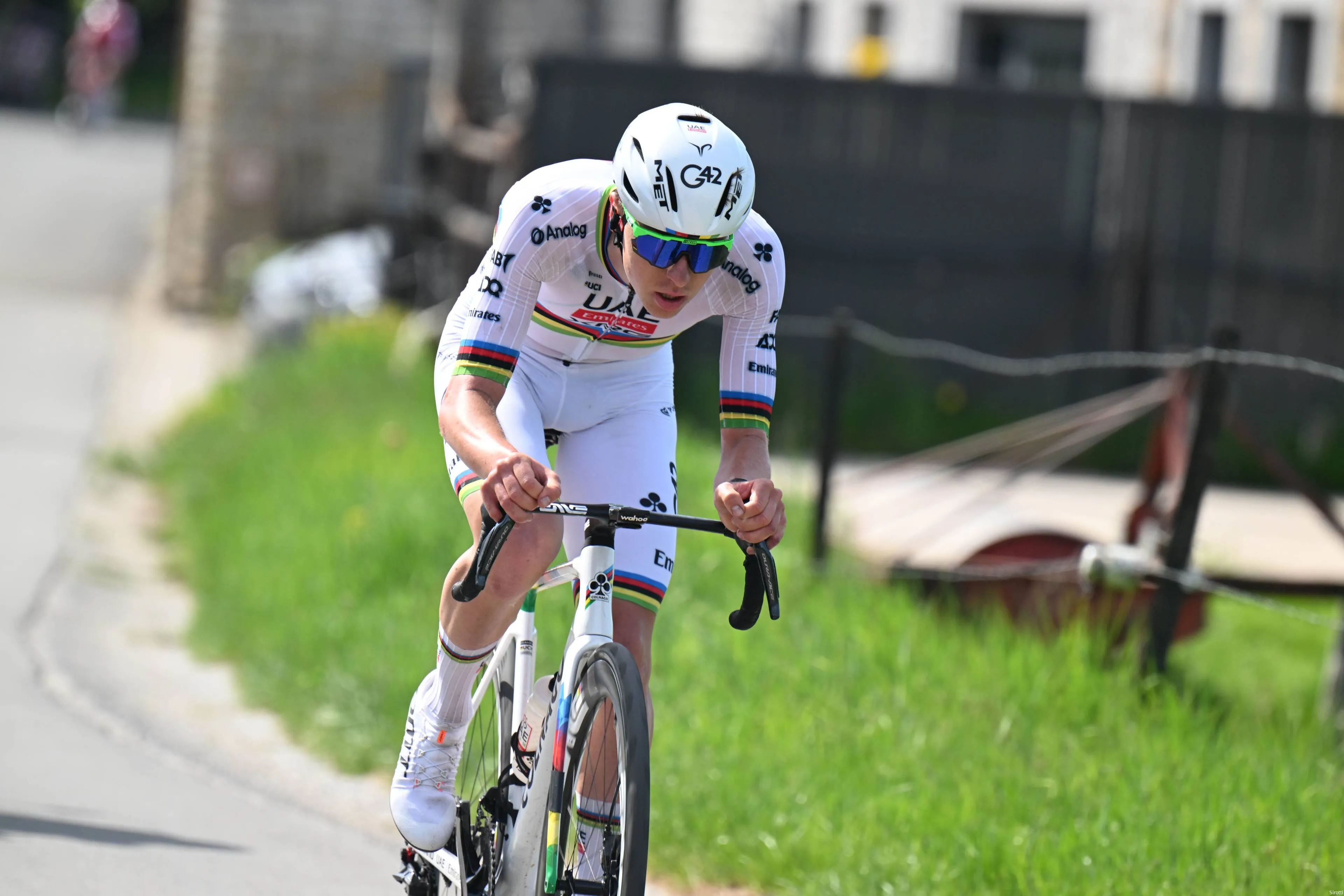
One acceleration. That’s all Tadej Pogacar needed to make the difference in Liège–Bastogne–Liège. On the Côte de la Redoute, he flew away from his rivals, and they never saw him again. By now, it almost doesn’t feel surprising anymore, but the data on Strava gives a clear picture of just how extraordinary the world champion’s latest performance really was.
With 35 kilometers to go, Pogacar was already alone. He launched his attack on La Redoute, but not where his rivals expected it. The UAE Team Emirates–XRG leader surged away even before the steepest gradients began. With an acceleration so early on the climb, it’s no wonder he set the fastest time ever recorded on the famous hill. In just 3 minutes and 58 seconds, he reached the top, three seconds faster than the previous KOM held by Jarno Widar. Louis Barré was the second-best rider up La Redoute during the race, perhaps a surprising name, but not entirely unexpected given his recent form.
For comparison: Remco Evenepoel’s best time on La Redoute, the key climb of La Doyenne, is 4 minutes and 12 seconds, 14 seconds slower than Pogacar. But just as impressively, the eventual winner was also the fastest on the Cornemont, the stretch that follows La Redoute. Evenepoel, for example, tried to close the gap there in previous editions but wasn’t successful this time. Pogacar was simply too strong and extended his lead even further, including on the tricky false-flat sections after La Redoute. When you combine the times for La Redoute and Cornemont, Pogacar was a stunning 24(!) seconds faster than the second-best time, set by Evenepoel during his 2023 victory.
Read more below the Strava data!
The Pogacar effect is visible in every classic
On the Côte de Roche-aux-Faucons, Pogacar, perhaps surprisingly, wasn’t the fastest ever: with a time of 3 minutes and 51 seconds, he was no less than 20 seconds slower than David Gaudu and Michael Woods in 2021. But of course, the Slovenian had managed his effort differently. If you look at the segment from the Côte de Forges through the outskirts of the Roche-aux-Faucons, a stretch of nearly 15 kilometers, Pogacar was once again the fastest. No big surges in his final efforts, just a blisteringly high pace maintained over a long period. It shows how much Pogacar has matured, pacing himself better and rarely overextending.
Another stunning statistic: Jonas Creteur compiled the average speeds of the 14 most important spring classics. In the previous decade, the average speed was 41.578 km/h. In 2025, that number has risen significantly: this year's one-day races have been raced at an average speed of 44.329 km/h. Interestingly, last year was even slightly faster, but it clearly shows how much stronger today's riders are compared to the previous generation.
Read also
IDL-productions

Preview Eschborn-Frankfurt 2025 | Where spring classics meet Giro (and everything in between)
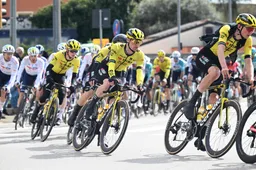
"I’m not going to sit in the chair of the sports management": Visma | Lease a Bike reflects on the spring classics season

Course and results Tour of Turkey 2025 | Dehairs leads after stage win, tough second stage ahead
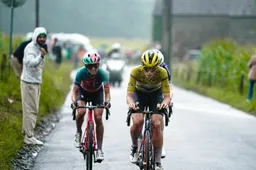
Preview Liege-Bastogne-Liege 2025 - women | Maybe a Tour de France Femmes 2024 rematch?
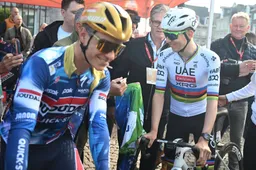
Preview Liège-Bastogne-Liège 2025 | Pogacar and Evenepoel as top favorites in last spring classic
Latest Cycling News

🎥 More dangerous scenes at Liège–Bastogne–Liège: two (!) cars on the course, 'fan' rides along with women's race

Foreign newspapers critical: Pogacar's rivals 'afraid to burn their wings' and 'Evenepoel drowned on La Redoute'

Nys surprised himself in Liège and adjusts ambitions, but first looks to the summer: "Already studied the first week of the Tour"
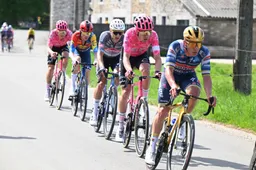
Disappointment after Evenepoel 'logically' falls short in Liège after tough winter: "Got caught up in the overly high expectations myself"

Preview Eschborn-Frankfurt 2025 | Where spring classics meet Giro (and everything in between)
Popular Cycling News
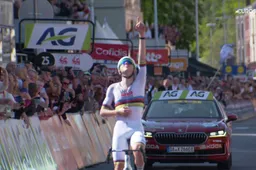
Pogacar sensed something was wrong with Evenepoel and Soudal Quick-Step before La Redoute: "Suddenly, they all disappeared"
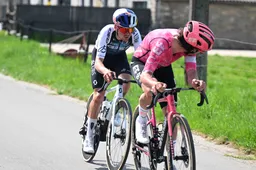
Pidcock saw Pogacar's unusual move, Alaphilippe 58th after cramps, Velasco takes a big step forward
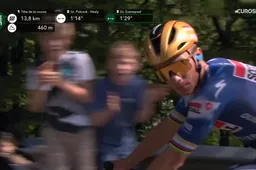
What happened to Remco Evenepoel in Liège-Bastogne-Liège? "I'm not a robot," states the Olympic champion
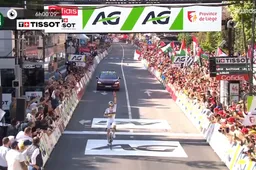
Much-anticipated battle between Evenepoel and Pogacar falls short: World Champion wins Liège–Bastogne–Liège after dominant solo
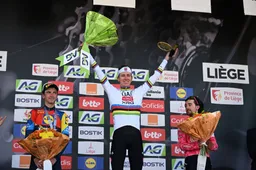
Pogacar’s 'killer move' strikes fear at Liège–Bastogne–Liège: "What I thought? Basta"
Latest Comments
- Why continue to give this bully and liar a platform. Both he and Bruyneel should be persona non grata in the cycling world.Aodh25-04-2025
- Such negative comments that are truly inappropriate and actually ridiculous. He sounds like an old man, bitter that he can't race anymore. Why can't he just be gracious? Or just shut up. Instead of howling for attention, in such a rude manner. Must be Dementia creeping in. We are all living in the Now. Records are there, and some are being broken, some are unapproachable. If he doesn't like it, and it makes him sick, maybe he ought start watching some other sport. Don't want the old mans health to be upset.
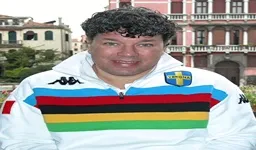 reemmo031-03-2025
reemmo031-03-2025 - Roger De Vlaeminck inspires me to create a new beer: "Bitter Old Twat Belgian".JackInhof31-03-2025
- Shoot, I'll ride it for 1/10 of what his pay for that day is😅Veganpotter30-03-2025
- What is this? The Lance Armstrong daily cheaters channel? I could care less about Johan and Lance the seven times cheater. Greg Lemond was right all along, Why don't you write about that instead of these two knuckleheads.velodrone28-03-2025
- Are we all doomed to hear from Lance Armstrong and Johan bruneel until the end of time? It's not enough the stain they left on cycling? Do we have to see that shadow forever?bigyakman26-03-2025
- I am not sure if it is the hardest to win. In Flanders and Roubaix well before the finish the Peleton will be decimated and the race will normally be won by the best rider of the day or maybe 2nd or 3rd in case of a mechanical or unlucky break especially in case of Roubaix. In San Remo just before the finish there will still be several riders in contention and they are hard to ditch. For the best riders it is a race hard to win since it is not so selective. But if you are not a top 5 rider but still a top 10 rider this race is your best change to win. You will see more Milan San remo Winners with only 1 monument win than any other monumentsJoostmehrtens19-03-2025
- "fap fap fap oh Lance oh oh OHHHHHHH" again. Does he pay you to dredge up people with nice things to say about him? He was an giant a$$hole to people. It is a fact. Whatever his contrition about the doping, he is unapologetic about being a giant a$$hole to people. (Why yes, I do only login to complain. *I* am however only a giant a$$hole to people who laud giant a$$holes.)ericjensenridesbikes25-02-2025
- Remco is still very young. And injuries can absolutely keep you from overdoing it and getting worse. The recent Remco accident didn't keep him from being able to ride a recumbent inside. Wout's knee is a different story thoughVeganpotter23-01-2025
- Van der Poel style is winning by a half a lap and leading the race from the end of the second lap.
 Barnes127420-01-2025
Barnes127420-01-2025


